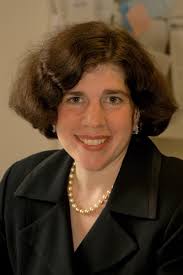In what would have been this week's haftorah, we have the second of Eliyahu Hanavi (Elijah the prophet)'s two legendary episodes. His first, and most famous, is of the happening at Har Carmel, where in the showdown with Achav and his false prophets of ba'al, Eliyahu emerges miraculously victorious. In what has become a rallying cry ever since, and the pinnacle of our prayers on Yom Kippur, the previously borderline people of Israel respond to his display of God's all-might with the fearful and awesome scream of "ה' הוא האלוקים, ה' הוא האלוקים" "God is the Almighty (2x)". As our would-be haftorah picks up the story, we are greeted with an unexpected turn of events - Eliyahu fins out that Achav and Izavel are still out to kill him and he runs away. Runs away?! Didn't he just achieve the magnificent and tide-turning victory over his enemies and win the hearts of the people? C'mon, only
What? What's happening here? At what does this have to do with what I started with?
The Malbim, in analyzing God's questioning of Eliyahu, explains a prophet's role as being with the people, advising them, guiding them, loving them, and leading them. Hence God's bewilderment and chastisement at Eliyahu's detached disappearance into the desert, instead of staying and dealing with the people of Israel. (In comparison, Moshe stayed at Har Sinai to selflessly fight for Israel’s continuity, even offering up his life for a people who would constantly disappoint him.) Eliyahu's response is that his zealousness and frustration at the people's lack of change have made him unfit for the job; he did God’s grand miracles for them, proved God’s existence at Har Carmel in front of the masses, and got all of the attendees to acknowledge God’s Divinity, only to have them turn a blind eye the next day. The Malbim then connects this to God's meteorological demonstration, explaining that God is showing Eliyahu that He is not necessarily found in big shows, or in over-the-top demonstrations - like Eliyahu carried out at Har Carmel. Even with all the lighting, miraculous rain, thunderous cries of belief, and Eliyahu's zealous fights, it was a failure, and Eliyahu ran away defeated. Defeated? But didn't it work? Didn't the people all say they believed in God? God's message was that there is another way - not of force and strength, but of the small, silent things. That is how God wants his leaders to lead His people to Him - with cords of love and soft words of understanding, and with the subtle sounds of silence. Thus, Eliyahu failed - for while the people said what they had to out of fear, the all-powerful and overbearing Truth failed to cause a lasting and deep-seated change in the hearts and souls of the people. Hence the continued persecution of Eliyahu, even after the mega event, and Eliyahu’s consequential frustration and self-imposed isolation. While God first yelled at him for being absent from his post, Eliyahu’s incompatibility with this role leads God to yell at him again and remove him from his post. Eliyahu is then replaced by Elisha, who we first see contrastingly following 12 oxen (hinting to the 12 tribes) and feeding the masses around him (the ideological forerunner of a rebbe’s shirayim).
Fittingly, Eliyahu’s punishment is that he never dies; he is forced to wander the earth for all of time, amongst the people he failed to love and understand. He is thus a visitor at every Jewish brit milah, testifying that God’s people are keeping His covenant, attending every family Seder, bearing witness that the people of Israel are still on their long and winding path back to their Father in heaven, and visiting every motzei Shabbat, celebrating with and recording the merits of the children of Israel. In the end, Eliyahu’s final emancipation will be to finish the long and arduous progression of redemption, returning the hearts of parents to their children and the children’s hearts to their parents. This is not an instant mega-solution, but a slow, multigenerational, heart-to-heart process; only through those ordinary, silent, and genuine understandings will the Final Redemption come and reunite the people of Israel amongst themselves and with God.
So what’s my secret? I don’t really have one; just be a nice, friendly, and warm person. Connect people to each other, to God, and to the world of Judaism around them - and everyone in their own, personal, small ways. It is important to recognize and remember that each person is different and the path to each person’s heart is unique. For all the “things” that I do, it’s really all about the spontaneous, genuine, heart to heart conversations that I have with people, the silent smiles or the welcoming gestures. Even as this has grown in leaps and bounds, I still hold by that assertion, and I am beginning to understand why the movement is called “Heart to Heart”. May we live and work to see the fulfillment of "והשיב לב אבות (לב אבות) על בנים ולב בנים על אבותם"
p.s. I know I am offering solutions here, but I wouldn’t call them “tricks to making people religious”, merely open reminders for normal life.
p.p.s. Most of this came from Rav Elon's insights, which can be found here





